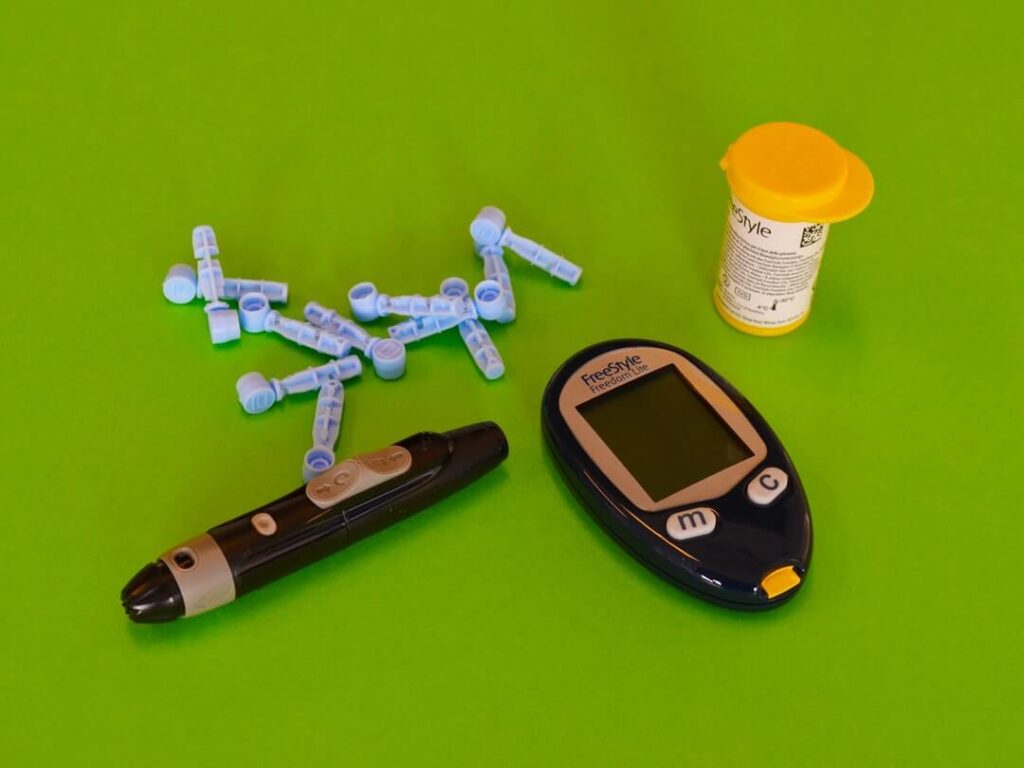Researchers have linked about half of diabetes cases in the United States to obesity.
Even for those who are overweight, the link between diabetes and obesity is strong. Having one can lead to the other, and having both can make each one worse.
If you or someone you know struggles with their weight, you may have to consider your blood sugar.
To learn more about diabetes, obesity, and the link between the two, keep reading.
Explaining the Link Between Diabetes and Obesity
Over and over again, studies show that obesity leads to type 2 diabetes.
The risk of developing diabetes comes from the chronic state of inflammation that obesity causes. Immune cells from the fat tissue produce toxic chemicals.
Over time, these toxic chemicals create a state of lipotoxicity, which depletes the body’s ability to create insulin. And, it can impair how the existing insulin functions within the body.
The link between diabetes and obesity may exist because of similar risk factors. These include age, genetics, environment, and medical history.
Both diabetes and obesity increase in prevalence with age as well as with family history. Although, regardless of genetic predisposition, diabetes risk increases with an unhealthy lifestyle.
Why Fat Distribution Matters
Depending on your genetics, the distribution of fat across your body will vary.
If you have a lot of belly fat (visceral fat), you’re more likely to develop insulin resistance than those who develop subcutaneous fat, which lies just under the skin.
Fat can also get stored in the organs, which hinders how these organs function.
Lastly, fat can store itself in our muscles. Without it, our muscles maintain our insulin sensitivity while burning glucose for energy. With it, these processes get disrupted.
If the body can’t find a way to store energy, the muscles will become a fat depot. This makes it difficult for our bodies to get rid of the excess glucose we may have.
Weight Loss and Diabetes
Interestingly, one of the earliest symptoms of diabetes is weight loss. Some patients lose ten pounds or more in a short time period.
This weight loss happens because of insulin resistance. With this condition, the body isn’t able to transfer glucose into the cells for energy. If the body isn’t able to sensitize itself to insulin, it may have to find a different energy source.
The body may turn to using fat and/or muscle for energy, causing unintentional weight loss.
Losing too much weight in a short period of time can be harmful, but some weight loss may help your condition.
As diabetes advances, patients tend to go on one medication, then two, then more. Weight loss can drastically change this course.
Let’s consider a patient taking one medication for pre-diabetes. In this scenario, they lose ten pounds over the first few weeks of taking it. Because of this weight loss, their body has recovered and the pre-diabetes has reversed itself.
Now, the patient can come off of the medication and doesn’t need to progress to two or more anti-diabetic medications.
Every scenario isn’t as perfect as this one. But, the evidence stands for itself: weight loss can dramatically improve the lives of diabetic patients.
Even if you aren’t able to lose weight, a consistent and healthy diet and exercise regimen can make a big difference.
Addressing Weight Gain
Type 2 diabetes also causes weight gain. Again, it’s because of insulin.
In this situation, we have to look at insulin as a growth hormone. Having insulin resistance can lead to weight gain as the body works to produce more and more insulin.
Some patients also experience weight gain while taking insulin therapy to combat their insulin resistance. Gaining weight while on this therapy may be a sign that it’s working. It means that your body is using sugar, fat, and protein more effectively.
Battling the Effects of Obesity
Losing 5-10% of their body weight may help patients with type 2 diabetes improve their blood sugar numbers.
Many patients with diabetes have trouble losing weight because of medication side effects and internal struggles with their chronic condition. It may take a lot of extra effort for patients with type 2 diabetes to lose weight.
Nevertheless, a healthy diet and exercise are the best ways to get your blood sugar under control.
Often, diabetics will hire a nutritionist to help them come up with a personalized meal plan.
When Obesity Doesn’t Lead to Type 2 Diabetes
Obesity is likely to lead to type 2 diabetes. But, it doesn’t always happen.
Other than weight, there are many factors that affect your risk of developing diabetes:
- Family history
- Diet
- Exercise
- Stress
- Gut health
It’s possible to have obesity without type 2 diabetes. Further, it’s possible to have obesity without insulin resistance.
Some people have the ability to produce more insulin without putting too much pressure on the pancreas. Others may have the ability to limit their insulin production so their body doesn’t produce too much.
Comorbidities of Type 2 Diabetes
The effects of obesity continue to affect the body even after the development of diabetes. There is a range of conditions that you may be at risk for after developing type 2 diabetes:
- Hypertension
- Heart disease
- Stroke
- Peripheral neuropathy
- Kidney disease
- Blindness
If you begin experiencing symptoms of any of these conditions, it’s likely that your diabetes has worsened. And, you may need more specialized care, including more medications and other treatments.
As with general diabetes, these conditions are genetically-linked.
Weight Management Strategy to Reduce the Risk of Developing Diabetes
Whether or not you’ve experienced the effects of obesity, you may need to get your weight under control. Even if you don’t have type 2 diabetes, you’re putting your body under unnecessary strain.
We know how hard it is for some patients to lose weight. It’s not just a matter of caloric deficit.
There are so many factors to take into consideration.
If you’re looking for an effective weight management strategy, reach out to our team at Blue Sky MD. We have a variety of treatments to help you with diabetes and obesity.
If you’re interested, schedule an appointment today.




